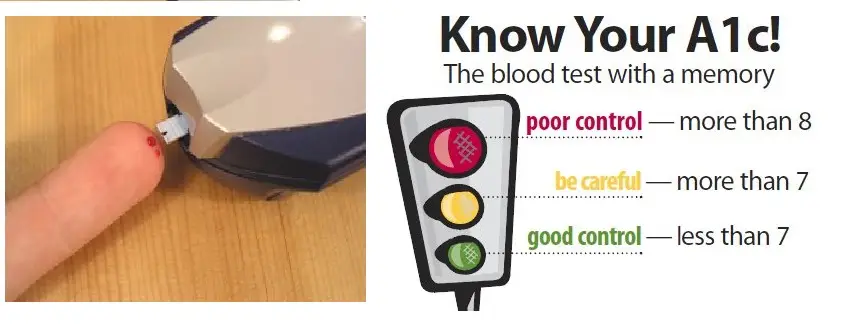About the author: Dr Shilpi Kulshreshtha
Optimum care is essential for the well-being of people suffering from diabetes. Here are the 12 essential checks and services diabetics should receive. If you aren’t getting all the care you need, take this checklist to your Specialist Diabetic Consultant/team and discuss it with them.
- Get your blood glucose levels measured at least once a year*. An HbA1c blood test will measure your overall blood glucose control. Your Specialist Consultant for Diabetes will set your own target.

- Have your blood pressure measured and recorded at least once a year, and your Specialist will set a personal target that is right for you.

- Have your blood fats/lipids (such as cholesterol) measured every year. Like blood glucose levels and blood pressure, you should have your own target that is realistic and achievable.

- Have your eyes screened for signs of retinopathy every year. A special digital camera is used to take a photograph of your retina (at the back of your eye) and a specialist will look for any changes. This free test is part of the annual diabetic screening service and is different to the checks carried out by an optician. If you notice any changes between appointments it is important to contact your optometrist or General Physician (GP).
- Have your feet checked. The skin, circulation and nerve supply of your feet should be examined annually.
- Have your kidney function monitored annually. You should have two tests for your kidneys: a urine test for protein (a sign of possible kidney problems) and a blood test to measure kidney function.
- Have your weight checked and your waist measured frequently to see if you need to lose weight.
- Get support if you are a smoker including advice on how to quit. Having diabetes already puts people at increased risk of heart disease and stroke, and smoking further increases this risk.
- Receive care from a specialist paediatric team if you are a child or young person. The Type 1 essentials for children and young people set out what good diabetes care should look like.
- Receive high quality care if admitted to hospital. If you have to stay in hospital, you should still continue to receive high-quality diabetes care from specialist diabetes healthcare professionals, regardless of whether you have been admitted due to your diabetes or not.
- Get information and specialist care if you are planning to have a baby as your diabetes control has to be a lot tighter and monitored very closely and your medicines may need changing before you plan a pregnancy. You should involve your Specialist Diabetes Consultant at every stage from preconception to post-natal care.
- Get emotional and psychological support. Being diagnosed with diabetes and living with a long term condition can be difficult. You should be able to talk about your issues and concerns with your Specialist Diabetic Consultant and other specialist healthcare professionals.
*Could be more frequent depending on your diabetes control
Useful links:
